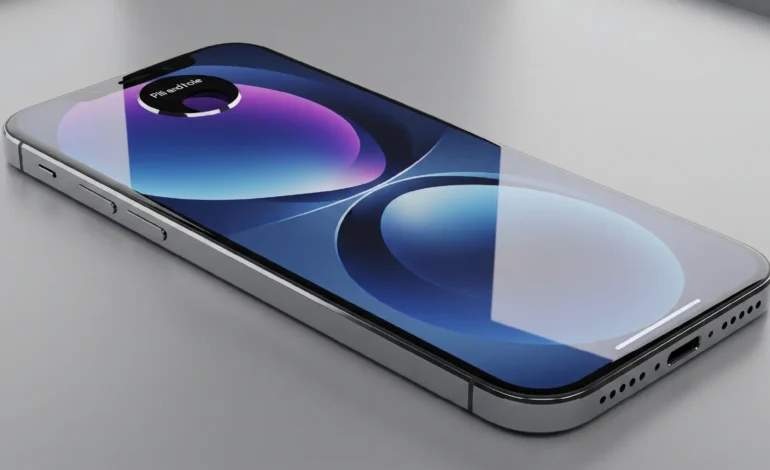iOS 19 vs Android 16: 7 New Features Compared (And Who Wins)
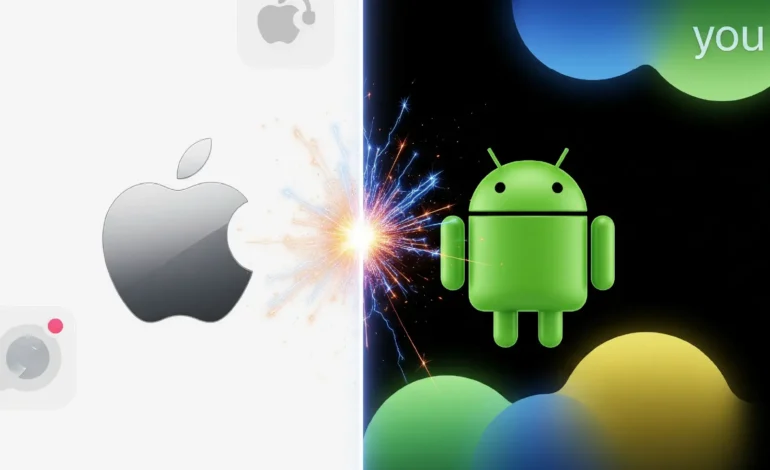
Every year, the tech world is dominated by one fundamental question: who is winning the war for your pocket? The annual iOS 19 vs Android 16 debate is more than just a clash of features; it’s a battle of philosophies for the future of mobile computing. With the public betas now in the hands of users and the final releases just around the corner, we have a clear picture of what Apple and Google have in store for us in 2025.
This year, the fight is centered on three key battlegrounds: smarter, more practical Artificial Intelligence, deeper user customization, and enhanced privacy. Both platforms have made significant strides, but they’ve done so in characteristically different ways. The iOS 19 vs Android 16 comparison is fascinating this year.
So, should you be saving for the new iPhone or getting excited about the next Pixel? We’ve spent weeks with both betas to bring you a definitive breakdown of the 7 most important new features and crown a winner for each. This is the ultimate iOS 19 vs Android 16 showdown.
Table of Contents
- The AI Assistant Battle: Siri vs. Google Assistant
- Home Screen & Customization: Freedom vs. Finesse
- Notifications & Focus: Taming the Digital Noise
- Privacy & Security: The Digital Fortress
- The Cross-Device Ecosystem: How Well Do They Play Together?
- Messaging: The End of the Green Bubble War?
- The “Wow” Factor: Exclusive New Features
1. The AI Assistant Battle: Siri vs. Google Assistant
The biggest story of the iOS 19 vs Android 16 debate is AI.
- iOS 19: Apple is doubling down on “Apple Intelligence,” making Siri more conversational and deeply integrated into the OS. Siri can now take multi-step commands related to on-screen content and perform complex actions within apps, like “summarize this article and send the key points to Sarah.” It’s a huge leap in on-device processing, with a major focus on privacy.
- Android 16: Google Assistant, now supercharged with Gemini, is more proactive and powerful. It can analyze the context of your entire screen to offer assistance, draft more sophisticated emails, and even generate AI images directly in your messages. Its connection to Google’s vast knowledge graph gives it an edge in real-world information. As tech site The Verge notes, this is a battle of private, on-device intelligence versus the power of the cloud.
Winner: Android 16 for raw power and knowledge, iOS 19 for seamless, private on-device integration.
2. Home Screen & Customization
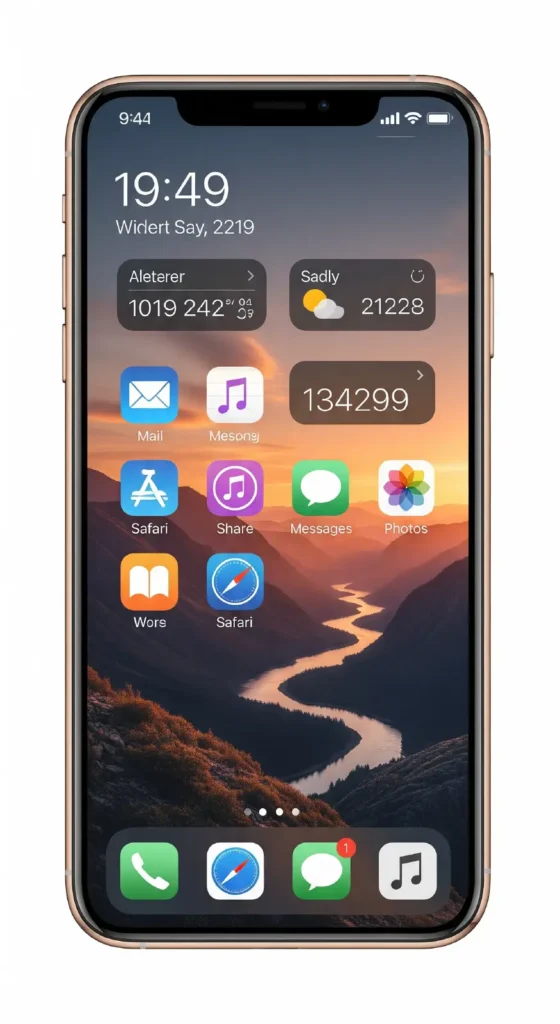
- iOS 19: Apple finally gives users what they’ve been asking for: the ability to place icons and widgets anywhere on the grid. You can now create open spaces and truly unique layouts. You can also apply a color tint to all your app icons to match your wallpaper, a feature borrowed from Android. It’s a massive step forward for iPhone personalization.
- Android 16: Material You evolves with more advanced AI-powered theme generation. It can now create custom icon packs and font styles based on your wallpaper, going beyond just color. Lock screen customization is also deeper, with new clock styles and interactive widgets.
Winner: Android 16 still holds the crown for sheer depth of customization, but iOS 19 has closed the gap significantly.
3. Notifications & Focus
- iOS 19: Introduces “Live Notifications,” allowing certain apps to display real-time, dynamic information (like a sports score or your food delivery status) in a persistent, low-power notification on the lock screen. Focus Modes are also smarter, using AI to suggest which contacts and apps to allow based on your current activity.
- Android 16: Features AI-powered notification summaries. You can have the OS automatically group and summarize non-urgent notifications into a single “digest” delivered at a time of your choosing. It also introduces “Notification Channels 2.0,” giving users even more granular control over what kind of notifications an app can send.
Winner: iOS 19 for its innovative “Live Notifications,” but Android 16 for its powerful management tools.
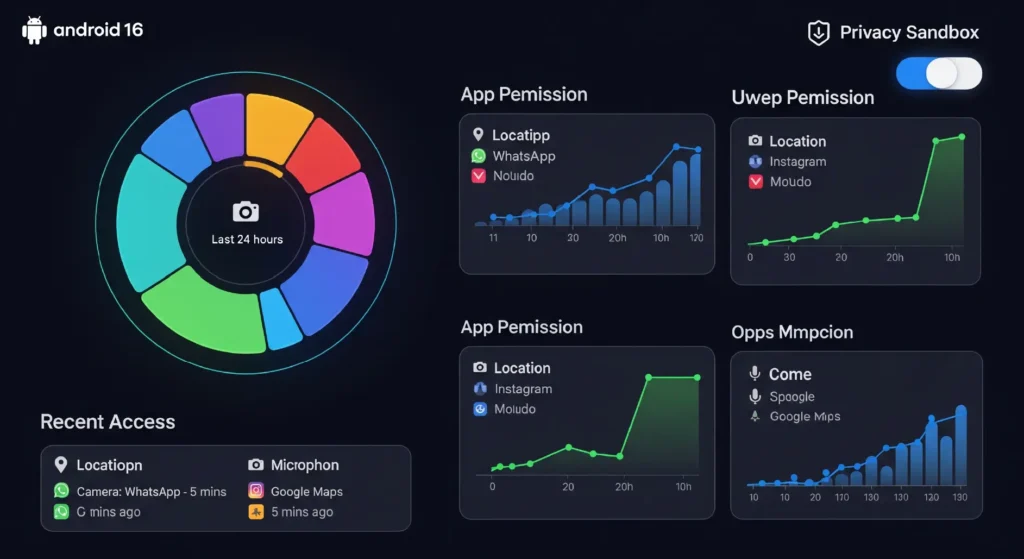
4. Privacy & Security
The iOS 19 vs Android 16 privacy debate is more nuanced than ever.
- iOS 19: Builds on its lead with an expanded “App Privacy Report” that now shows which third-party SDKs are embedded in your apps. It also introduces “Private Cloud Compute” for more complex AI tasks, ensuring your data is processed securely off-device when necessary.
- Android 16: Rolls out its version of the “Privacy Sandbox,” a major initiative to phase out third-party cookies in apps and browsers for more private ad tracking. The Security Hub is also more proactive, offering personalized recommendations to strengthen your device’s security.
Winner: A tie. Both platforms are taking user privacy extremely seriously, just with different areas of focus.
5. The Cross-Device Ecosystem
- iOS 19: Apple’s ecosystem remains its “superpower.” Handoff, Universal Clipboard, and AirDrop are now faster and more reliable. The integration between the upcoming iPhone 17 and Vision Pro 2 headset is a major focus, with new shared AR experiences.
- Android 16: Google has made huge strides here. “Nearby Share” is now more robust, and new “Cross-Device Services” allow you to seamlessly switch audio between your phone, tablet, and Chromebook, or use your phone as a webcam for your laptop with near-zero latency. Official documentation on Android’s website details these new integrations.
Winner: iOS 19 still offers the most seamless and magical ecosystem if you own all Apple products, but Android 16 is now a fantastic and more open alternative.
6. Messaging: The End of the Green Bubble War?
- iOS 19: As promised, RCS support is finally here. This means that when you text an Android user from your iPhone, you will now get high-resolution photos/videos, read receipts, and typing indicators. It’s a massive quality-of-life improvement.
- Android 16: Not standing still, Google Messages has integrated new Gemini AI features, allowing you to generate “Magic Replies” or create AI stickers and images directly in a conversation.
Winner: The user. This is a huge win for cross-platform communication, finally fixing a long-standing issue.
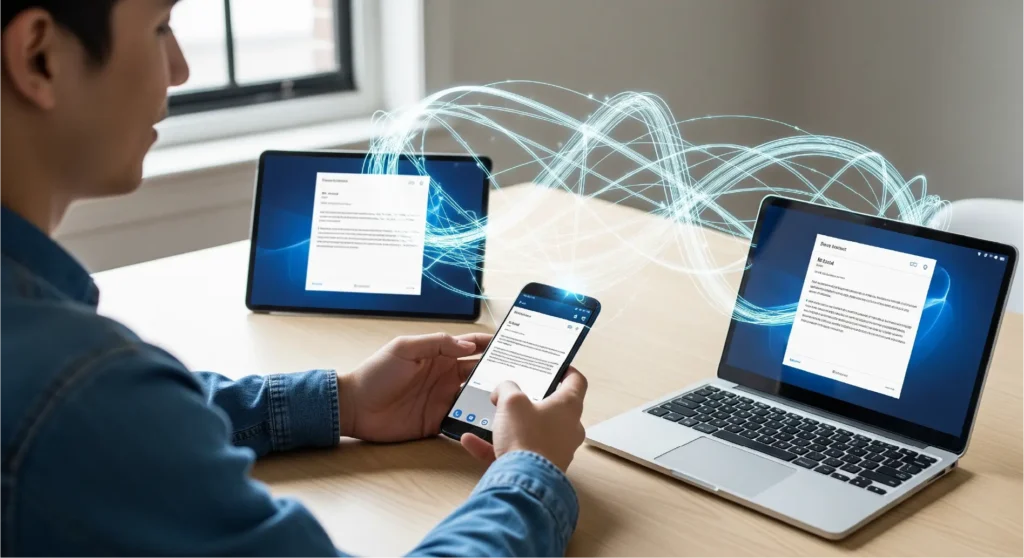
7. The “Wow” Factor: Exclusive New Features
The final round of the iOS 19 vs Android 16 battle comes down to unique features.
- iOS 19: The standout feature is a new AI-powered “Memories” video creator. It can automatically take your photos and video clips from a trip or event and create a stunning, stylized short film, complete with a licensed music track, all on-device.
- Android 16: The most impressive feature is advanced satellite connectivity for emergencies. Building on initial efforts, it now allows for two-way satellite messaging from almost anywhere on Earth, a feature backed by major providers like Iridium.
Winner: Android 16 for its potentially life-saving utility.
Conclusion
The iOS 19 vs Android 16 rivalry in 2025 is closer than ever. Apple has made huge strides in customization, while Google has refined its ecosystem and continues to lead with the raw power of its AI.
- Choose iOS 19 if: You are invested in the Apple ecosystem, prioritize seamless integration and on-device privacy, and have been waiting for more freedom to personalize your phone.
- Choose Android 16 if: You want the most powerful and proactive AI assistant, the deepest level of customization, and an open platform that works well with a wide range of hardware.
Ultimately, both operating systems are incredibly mature and powerful. The “best” choice is no longer about which is objectively superior, but which philosophy best aligns with your personal needs.
For more deep-dive comparisons and the latest in tech news, continue to explore our guides at techpastel.com.

